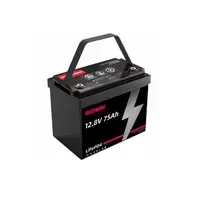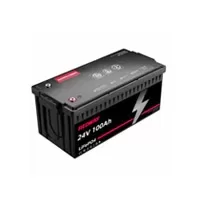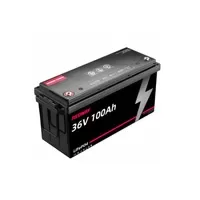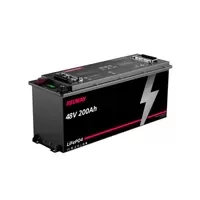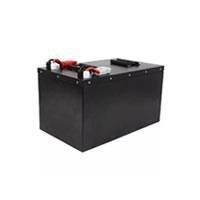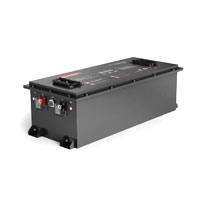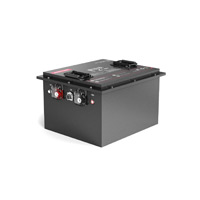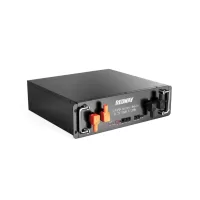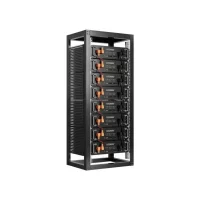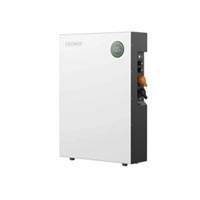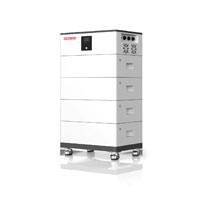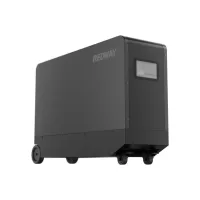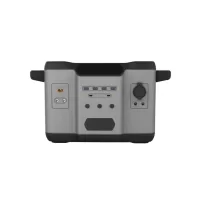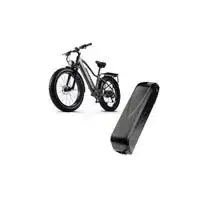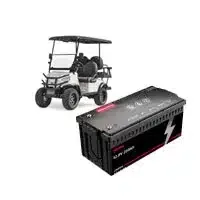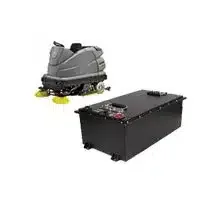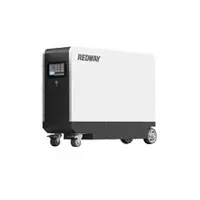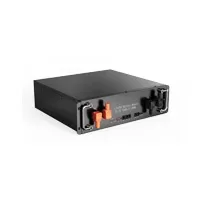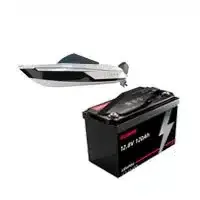Welcome to our blog, where we dive deep into the world of lithium batteries! If you’ve ever wondered how long a 100Ah lithium battery can last, you’re in the right place. Whether you’re powering your RV on a cross-country adventure or relying on solar energy for your off-grid oasis, understanding battery life is crucial. In this article, we’ll explore the factors that affect battery lifespan and provide tips for optimizing performance. So let’s get started and uncover the secrets behind maximizing your 100Ah lithium battery’s potential!
Understanding Lithium Batteries
Understanding Lithium Batteries
Lithium batteries have revolutionized the way we power our devices. Unlike traditional lead-acid batteries, lithium batteries offer several advantages that make them a popular choice for various applications.
First and foremost, lithium batteries are known for their high energy density. This means they can store more energy in a smaller and lighter package compared to other battery types. So whether you’re powering a small electronic device or running an entire solar system, lithium batteries provide ample power without weighing you down.
Another notable feature of lithium batteries is their low self-discharge rate. Unlike some other battery chemistries that lose charge over time when not in use, lithium batteries retain their charge for longer periods. This makes them ideal for applications where long shelf life is crucial.
Additionally, lithium batteries boast an impressive cycle life. A cycle refers to one full discharge and recharge of the battery’s capacity. With proper care and maintenance, a 100Ah lithium battery can typically endure hundreds or even thousands of cycles before its performance begins to degrade.
Furthermore, these modern marvels offer fast charging capabilities compared to other alternatives on the market. Thanks to advancements in technology, it’s possible to recharge your 100Ah lithium battery at a rapid pace – getting you back up and running quickly!
Understanding how lithium batteries work is essential when it comes to maximizing their lifespan and optimizing performance. From their high energy density and low self-discharge rate to impressive cycle life and fast-charging abilities – there’s no denying that these powerhouses pack quite the punch! Now let’s explore the factors that can impact your 100Ah lithium battery’s overall lifespan.
Factors that Affect Battery Life
Factors that Affect Battery Life
When it comes to the lifespan of a 100Ah lithium battery, several factors come into play. Understanding these factors will help you determine how long your battery can last and make informed decisions about its usage.
The rate at which you discharge the battery plays a significant role in its overall lifespan. The higher the discharge rate, the shorter the battery’s life will be. So, if you consistently draw high currents from your 100Ah lithium battery, don’t expect it to last as long as if you were drawing lower currents.
Another factor to consider is temperature. Lithium batteries perform best within a specific temperature range – typically between 20°C and 25°C (68°F and 77°F). Extreme temperatures can adversely affect their performance and longevity. High temperatures accelerate chemical reactions within the cells, leading to faster degradation of the battery.
Additionally, cycling patterns impact battery life. A shallow cycle occurs when only a small portion of capacity is used before recharging; whereas deep cycles involve discharging most or all of the capacity before recharging again. Shallow cycles tend to prolong a lithium battery’s lifespan compared to deep cycles.
Furthermore, storage conditions also influence how well your lithium batteries hold up over time. If they are stored for extended periods without use or maintenance charging, self-discharge may occur which could lead to irreversible damage.
Lastly but not least important is proper handling and maintenance of your batteries – such as avoiding physical damage like drops or impacts – which can significantly impact their overall lifespan.
By taking into account these various factors affecting your 100Ah lithium batteries’ life expectancy, you’ll be better equipped to optimize their usage and ensure they serve you reliably for years to come.
Calculating Battery Life in Hours
Calculating Battery Life in Hours
One of the most common questions people have about their lithium batteries is how long they will last. While there are many factors that can affect battery life, it is possible to estimate the number of hours your 100Ah lithium battery will last.
To calculate the battery life in hours, you need to consider two main variables: the capacity of the battery and the power consumption of your devices. The capacity of a 100Ah (ampere-hour) lithium battery means it can provide a steady current flow of 1 amp for 100 hours or 10 amps for 10 hours.
Next, you’ll need to determine how much power your devices consume. This information can usually be found on their specifications or user manuals. Let’s say you have a device that consumes 5 amps per hour. In this case, your 100Ah lithium battery would last approximately 20 hours (100 Ah ÷ 5 A = 20 h).
Keep in mind that this estimation doesn’t take into account other factors like temperature, discharge rate, and efficiency losses. These variables can slightly affect the actual battery life but should still give you a rough idea.
By calculating the estimated runtime based on your specific devices’ power consumption and considering any additional factors that may influence it, such as temperature fluctuations or inefficiencies within your system setup, you can better plan for uninterrupted use.
Understanding how long your lithium batteries will last allows you to make informed decisions about powering your devices while on-the-go without worrying about running out of juice unexpectedly!
Remember: proper maintenance and storage practices also play a crucial role in maximizing overall performance and lifespan. Storing batteries at optimal temperatures when not in use and avoiding over-discharging are just some ways to extend their longevity.
Calculating the exact duration of time a fully charged lithium battery will last depends on various elements such as its capacity measured in ampere-hours (Ah), the power consumption of your devices, and other external factors. By considering these variables
Tips for Extending Battery Life
Tips for Extending Battery Life
1. Optimize your charging practices: Avoid overcharging or fully draining the battery as this can reduce its lifespan. Instead, aim to keep the charge between 20% and 80%. Also, consider investing in a smart charger that automatically stops charging when the battery reaches full capacity.
2. Minimize exposure to extreme temperatures: Lithium batteries perform best within a temperature range of 32°F to 113°F (0°C to 45°C). Avoid subjecting your battery to excessively hot or cold environments as it can degrade its performance and decrease overall lifespan.
3. Reduce power-draining activities: Limit unnecessary use of power-hungry devices or applications that drain the battery quickly. Close background apps, dim screen brightness, and disable features like Bluetooth and Wi-Fi when not needed.
4. Regularly update software: Software updates often include optimizations that improve energy efficiency, so keeping your devices up-to-date can help extend battery life.
5. Enable power-saving mode: Most devices have a power-saving mode that reduces performance but extends battery life by limiting background processes and adjusting settings such as screen timeout.
6. Adjust display settings: Lowering screen brightness and shortening the sleep timeout period can significantly impact how long your device’s battery lasts throughout the day.
By implementing these tips into your daily routine, you can maximize the lifespan of your 100Ah lithium battery and ensure optimal performance whenever you need it most!
Comparing 100Ah Lithium Batteries to Other Types
Comparing 100Ah Lithium Batteries to Other Types
When it comes to choosing the right battery for your needs, it’s important to consider all available options. While there are various types of batteries on the market, one option that stands out is the 100Ah lithium battery.
Lithium batteries have gained popularity in recent years due to their exceptional performance and longevity. Compared to traditional lead-acid batteries, lithium batteries offer several advantages. They are significantly lighter and more compact, making them a perfect choice for those looking for portable power solutions.
Additionally, lithium batteries have a much higher energy density compared to other types of batteries. This means that they can store more energy in a smaller package, allowing you to power your devices for longer periods without needing frequent recharging.
Another significant advantage of lithium batteries is their impressive lifespan. While lead-acid batteries typically last around 300-500 cycles before losing capacity, a good quality 100Ah lithium battery can easily provide over 2000 cycles or more. This extended lifespan makes them not only reliable but also cost-effective in the long run.
Furthermore, unlike lead-acid batteries which require regular maintenance such as checking water levels and cleaning terminals, lithium batteries are virtually maintenance-free. This frees up your time and ensures hassle-free operation.
It’s worth noting that while lithium batteries may have a higher upfront cost compared to other types initially; however when considering their longer lifespan and lower maintenance requirements – they often prove to be an economical choice over time.
In conclusion (as per instruction), when comparing different types of batteries including the versatile 100Ah lithium battery with others like lead-acid or nickel-based ones – it’s clear that lithium technology offers superior benefits such as enhanced performance, longer lifespan,and lower maintenance requirements
Real-Life Examples of Battery Usage and Lifespan
Real-Life Examples of Battery Usage and Lifespan
Let’s dive into some real-life examples to understand how long a 100Ah lithium battery can last in different scenarios. Keep in mind that these examples are just estimates and your actual usage may vary.
1. Camping Trip: Imagine you’re going on a weekend camping trip with friends. You plan to use the battery to power lights, charge phones, and run a portable fridge. With moderate usage, the 100Ah lithium battery can easily last for two nights without needing a recharge.
2. RV Adventure: If you own an RV and rely on your battery for various appliances like lights, water pump, refrigerator, and entertainment systems, the lifespan will depend on your power consumption habits. On average, a fully charged 100Ah lithium battery should be able to provide enough power for about 24-48 hours before requiring recharging.
3. Off-Grid Living: For those who choose an off-grid lifestyle or have solar panels as their primary source of electricity, a 100Ah lithium battery acts as an energy storage solution during times when sunlight is limited or unavailable at night. Depending on your energy needs and available charging sources, it could last anywhere from one to three days before needing recharging.
4. Electric Vehicles (EVs): While not directly related to the topic of this article – since EVs usually require larger batteries – it’s worth mentioning that many electric cars utilize lithium-ion batteries due to their high energy density and longer lifespan compared to other types of batteries.
These examples highlight how versatile a 100Ah lithium battery can be in various applications where reliable power is essential. Remember that proper maintenance practices and understanding your specific energy requirements play significant roles in maximizing its lifespan!
Disclaimer: The above estimates are based on average usage patterns; individual results may vary depending on factors such as temperature conditions, load demands, charging methods used etc., always consult manufacturer guidelines for accurate information.
Conclusion: Making the Most of Your 100Ah Lithium Battery
Conclusion: Making the Most of Your 100Ah Lithium Battery
Having a reliable and long-lasting battery is essential, especially when it comes to powering your electronic devices or off-grid systems. A 100Ah lithium battery can offer you exceptional performance and longevity compared to other types of batteries on the market.
To maximize the lifespan and get the most out of your 100Ah lithium battery, there are a few key tips to keep in mind:
1. Proper Charging: Ensure that you use a compatible charger specifically designed for lithium batteries. Avoid overcharging or undercharging your battery, as this can significantly impact its overall lifespan.
2. Temperature Control: Lithium batteries perform best within a specific temperature range (usually between 15°C – 25°C). Avoid exposing your battery to extreme temperatures, as this can lead to reduced capacity and potential damage.
3. Regular Maintenance: Keep an eye on your battery’s health by monitoring its voltage levels periodically. This will help you identify any abnormalities early on and take necessary actions for maintenance or replacement if needed.
4. Efficient Energy Management: Optimize your energy consumption by using energy-efficient appliances or devices whenever possible. Being mindful of how much power you’re drawing from your battery can help extend its runtime significantly.
5. Storage Considerations: If you plan on storing your lithium battery for an extended period, ensure it is at around 50% charge level before doing so. Also, store it in a cool and dry place away from direct sunlight or extreme temperature fluctuations.
By following these guidelines, not only will you be able to prolong the life of your 100Ah lithium battery but also optimize its performance throughout its lifespan.
Remember that while calculations may estimate hours of usage based on capacity alone, actual runtime may vary depending on various factors such as device efficiency, discharge rate, environmental conditions, etc.
So make sure to consider all these aspects when determining how many hours exactly your specific 100Ah lithium battery will last.
Investing in a high-quality 100
Related Posts
- Zapping the Voltage: A Simple Guide to Multimeter Testing for AAA Battery Voltage
- Will solid-state batteries replace lithium?
- Will Batteries Last Longer in the Freezer? Answers to Your Freezing Battery Myths!
- Will batteries last longer in the freezer?
- Why you shouldn’t charge your phone overnight?
- Why would someone put batteries in the freezer?


